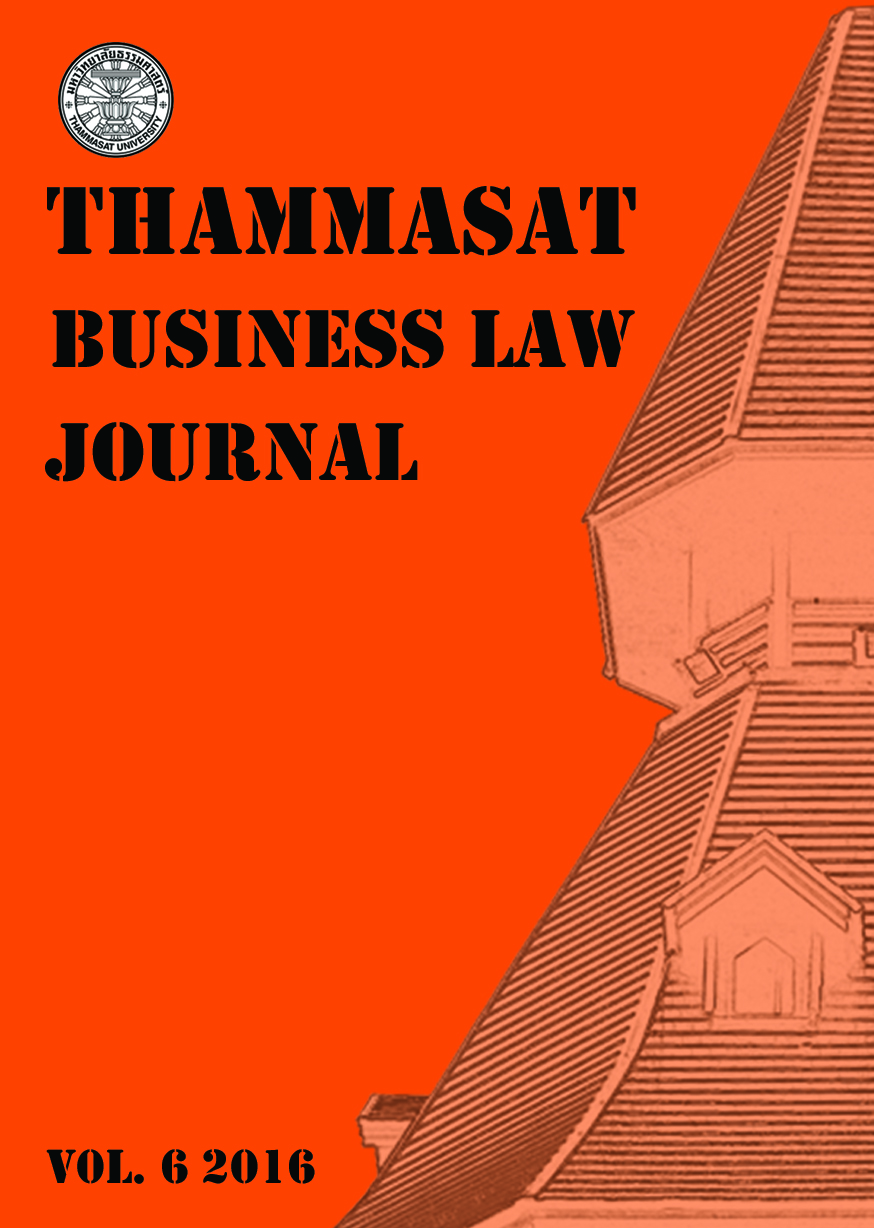OWNERSHIP IN SOCIAL MEDIA ACCOUNT AND ITS CONTENTS IN LIGHT OF THAI LAWS
Main Article Content
Abstract
As general comprehension, the intellectual property is one type of properties as it falls into the definition of “property” pursuant to Section 138 of Civil and Commercial Code B.E. 2535, property laws of other foreign countries, court judgments, as well as legal experts’ opinions. Even though the copyright law is basically stipulated for the purpose of protection of intangible things, those intangible things have value and can be appropriated. As similar with the intellectual property law, we can consider that the social media account and the digital contents are intellectual property and also property, resulting in that they can be owned. When the social media account and contents are properties and become valuable, the disputes over the ownership of the account and contents can ordinarily be expected as found in some foreign cases. When it comes to either transactions or disputes involving social media account and contents, as aforementioned that social media account and the digital contents are intellectual property and also property, therefore copyright law as well as Civil and Commercial Code B.E. 2535 govern those transactions and disputes.
It is known that Instagram and Facebook endorse the terms and conditions to allow their users to have their own ownership in the account and any contents uploaded to their websites, however, they claim their authority to access, disseminate or even allow the
privilege to third individual to access on users' digital copyrighted contents without asking for the user’s authorization. These acts seem to appear that the social media sites exercise the exclusive rights as joint copyright owners with user or as licensees. Even though the current Terms of Use employed by most social media sites do not evidently claim that the ownership in the contents belong to social media sites, (however Instagram ambiguously states in its current Terms of Use that service contents are owned by Instagram),[1] the practice and exercise by social media sites nowadays, by allowing the contents of one user to be distributed or exploited by other users, by availing users’ profile and postings through search engine websites, by interchanging the contents between the two social media sites belonging to one entrepreneur, are considered that those social media sites are exercising the exclusive rights as joint copyright owners or as a licensees.
The objective of this research is to examine whether there are any valid legal principles that the social media sites could employ to exercise copyright owner’s exclusive rights with the user on social media sites. The author investigated two approaches which could constitute the rights for social media site to exercise the exclusive rights as a joint copyright owner or as a licensee, namely, approaches relating with contract, and approaches relating with copyright laws.
Article Details
References
Panesar, Sukhninder. General Principles of Property Law. 1st ed. New York: Pearson Education Limited, 2001
Christopher, Newman. "What exactly are you implying?: The Elusive Nature of the Implied Copyright License." Cardozo Arts & Entertainment Law Journal 32 (2014): 501-559.
Bluemoon. “What are different sources of revenues derived for Facebook?”. available at http://faceblog.in.th/2011/01/infographicbusiness-behind-facebook/. (accessed July 15, 2016)
Hoye, J. C. "Click-Do WE Have a Deal?". available at www.lexix.com. (accessed Mar. 17, 2016).


